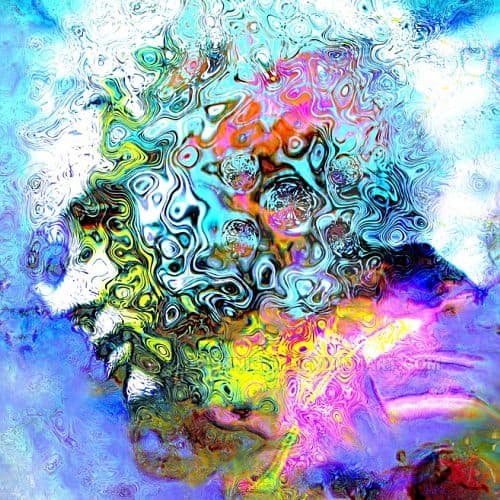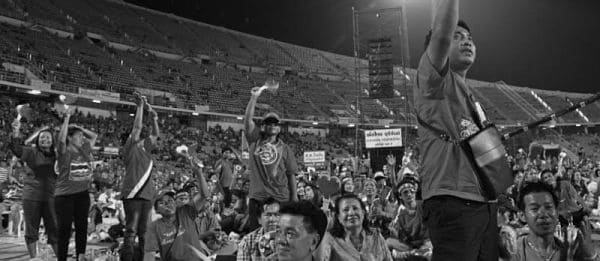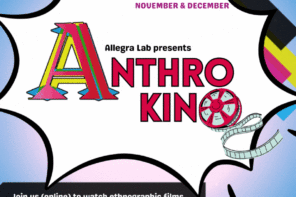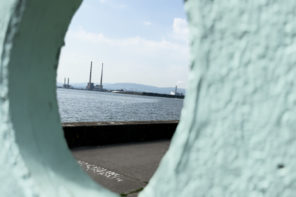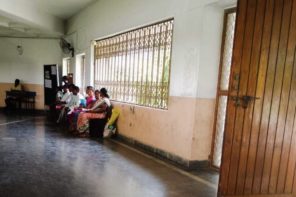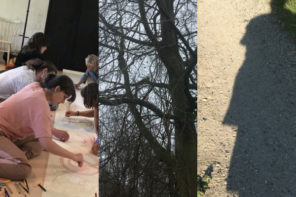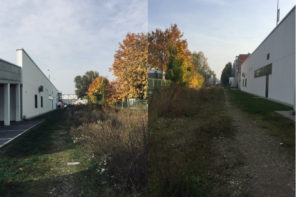Anthropology today is in a moment of creative rupture, redefinition, and profound possibility.
Our collective intellectual energy is directed toward contemporary social and political issues with a new sense of urgency. From recent debates over the AAA vote to boycott Israeli higher education institutions to task forces examining racialized police violence to collaborations around issues of climate change and conservation, many of us feel anthropological knowledge is uniquely situated to address contemporary social and political issues. As da Col and Graeber (2011) write in HAU, anthropology has a long history of public engagement, responsive to both local conditions and real world politics of the time. Yet, what might it mean to be an engaged anthropologist? How does engagement expose the necessity of responsible collaboration, reflexivity, and ethnographic representation as ethical and political practices?
In September 2015, the Department of Anthropology at the University of Colorado, Boulder hosted a graduate student conference on Engaged Anthropology to collectively and critically reflect on the ethical and political possibilities of engagement. Our impulse stemmed from a graduate seminar at Boulder on “Ethnographic Theory” focused on new directions in anthropological scholarship. Most conference participants were graduate students in the process of developing their dissertation projects having just returned from preliminary summer fieldwork. Many of us had questions about the responsibilities we as scholars have to our field site and communities, ourselves, and to the discipline. Around 50 graduate students, faculty, and community members attended to hear panels and participate in discussion over a two-day period. We invited Dr. Laurence Ralph from Harvard, whose ethnography Renegade Dreams (2014) inspired many of us in the Ethnographic Theory seminar, to give the keynote address and a workshop on responsibilities of fieldwork and writing. To conclude the conference, Dr. Carole McGranahan from the University of Colorado led a second work on engaged scholarship. Gathered in the anthropology library, surrounded by ethnographies written over the span of a century, the participants took seriously the questions of what it might mean to again make anthropological knowledge relevant beyond the discipline’s borders and how to build engaged practices into our graduate student work.
Collaboration was a key practical theme that emerged during the conference.
A few panelists meditated on how to collaborate in meaningful and ethical ways within the context of ethnographic research, offering models of community based participatory research and solidarity. This animated discussion among participants about how collaboration offers potentials to gain different kinds of knowledge and reach new publics. Collaboration enables us to work interdisciplinarily and to translate anthropological knowledge in ways that are useful beyond the academy. It also implicates a responsibility to assist the community in their social and political struggles. However, there was also concern with how collaboration may be used to obscure power within the research process and the politics of representation. It became evident that we need to define how we use the term collaboration and what we mean when we label interlocutors our “collaborators.” As an ethical and engaged practice, conversations in this conference pushed us to think of collaboration as a nexus that is not inherent in ethnography, but rather requires ongoing and active negotiations throughout the research, writing, and knowledge dissemination processes.
Woven within papers and throughout conversations were questions of how reflexivity and positionality supports engaged scholarship. This opened to vulnerable conversations about graduate students’ experiences and challenges in the field, and provoked a critical examination of the commonplaceness of reflexivity in ethnographic work.
Often, reflexivity in anthropology comes through writing; however, this conference suggested the need to think beyond and incorporate reflexive practices throughout the research process.
Panelists prompted us to think about the nuances that situating our positionalities offers as a method, a lifeway, and a responsibility. Key reflexive responsibilities discussed in papers included the importance of self-reflexivity while in the field, recognizing our positionalities as always multiple and in flux, personal responsibility for honest and critical engagement as native scholars, and responsible reactive positions with field sites enmeshed in conflict. Another panelist suggested reflexivity alone does not make research ethical, suggesting we need to take responsibility for the politics of our location in the US academy by entangling reflexivity with other ethical and political practices. Speaking to the mutuality that develops within dedicated research, graduate students and faculty alike reflected upon what representations and positions are interpersonally negotiated between researcher and research subjects.

Photo by Seth Barber (flickr, CC BY-NC-ND 2.0)
One panelist discussed how to move beyond tamed understandings of reflexivity into nuanced applications of self-reflexivity as a responsibility to both the research and her subjects. Exploring how within engagement to one’s fieldside and oneself, reflexivity implicates the responsibility to practice self-care in the field. This conversation is surprisingly absent within anthropology (although see Kimberly Theidon’s SSRC paper on self-care), and is important to address vulnerabilities of the research project.
As ethnographers, our craft is to write and tell stories.
Writing as praxis opens possibilities for engagement both within and beyond the academy. As was discussed in Dr. McGranahan’s workshop, it is important to identify who are our publics – which are always necessarily multiple and heterogeneous – and the most appropriate ways to reach them. It is also useful to think about the forms of writing – are our political commitments best expressed through theoretical discourse or narrative, in journal articles, blogs, or policy briefs? One participant elaborated on Brecht’s model of crude thinking to suggest writing crudely as political responsibility, while another suggested the need to write critically and affectively. Another panelist suggested the visual as a way to think outside writing, offering film as a different way of seeing and engagement.
Yet as anthropologists have discussed since Writing Culture (1986), we have to always contend with the politics of representation in ethnography. This of course implicates collaboration and reflexivity as discussed above, but also means historically contextualizing and destabilizing categories. There was vibrant discussion during Dr. Ralph’s workshop about the ethics of anonymity, particularly in a moment where the imagined distance between the subjects and readers of ethnography has all but vanished. As well, a number of participants were concerned with how to research and represent topics that are overdetermined and sensationalized by the media. Dr. Ralph suggested that with such subjects we can either tell sensational stories, which often leads to problematic representations, or write against the dominant narrative by telling stories of the everyday and the mundane. Ethnography has been recently engulfed in critique, with some outside the discipline calling it unethical in its method. Speaking back to this debate, the participants explored ethnography’s power to speak with multiple audiences and effect social change through careful attention to the ethics and politics of representation.
In a concluding workshop led by Carole McGranahan, she asked, “what does engagement mean to you?” There was no common answer all participants shared, nor did we work toward constructing one. Instead, the heterogeneous nature of answers from scholars whose field sites range from digital-scapes of the Tibetan diaspora community to right here in Denver, Colorado, allowed for breathing room as we continue to ask what engagement means. As nascent scholars, engagement does not mean one action or one method. It includes a variety of proactive and reactive actions to fulfill responsibilities we bear witness to in moments of inequality across landscapes of environment, gender, class, race, and access.
As the conference wrapped to a close, the atmosphere of the room was vibrant and we felt a new energy for growing as anthropologists. It has inspired us to carry these productive conversations forward in our respective research projects and collectively through graduate student colloquia. The initial call for this conference was to engage as emergent scholars in a discipline contending anew with intimate entanglements of engagement, ethics, politics, and research. For those of us organizing this conference, actively separating one from the other is unfathomable. The conference opened spaces of dialogue for us to question what engagement means in a variety of political climates. In so doing, this helps us to redefine and reimagine what engagement looks like at different scales, and where our commitments lie to our interlocutors, to our field site, to our discipline, and to broader publics. The Engaged Anthropology Conference asked us to question how do we navigate our entangled positions? How do we maintain a responsibility of representation from field site, to field note, to public prose? And what does engaged anthropology mean to us? At our conference and then two months later at the AAA conference, we witnessed thirst for further discussion of these questions.
Anthropological scholarship must be responsive to real-world politics. While the possibilities for how we respond shift over time, so too do our responsibilities. Anthropologists have always been engaged, and now is a moment to reimagine what that means.
Featured image ‘Creative Thinking’ by BKnight (DeviantArt, CC BY-SA 3.0)
This post was first published on 24 December 2015.

